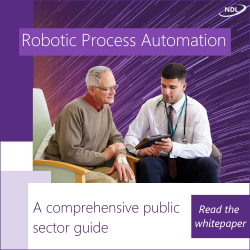
NHS Greater Glasgow and Clyde (NHSGGC) has launched a clinical investigation of how machine learning can be used in workflows to support the care of people with chronic obstructive pulmonary disease (COPD).
It is working with Lenus Health on the Dynamic-AI 12-month feasibility study on how models based on machine learning could identify patients at higher risk of adverse events.
This could support proactive interventions and help to reduce the number of emergency hospital admissions.
Lenus Health said this is the first project to operationalise predictive AI in routine direct care of chronic conditions.
It follows extensive co-design efforts with patients and clinicians to develop a technically viable and clinically explainable way of delivering risk scores derived from machine learning derived into existing care pathways.
First for predictive AI
“This is an incredibly exciting project. It’s the first time we’re bringing together predictive AI insight for COPD into live clinical practice,” said Dr Chris Carlin, consultant respiratory physician at NHSGGC, who is leading the investigation. “With the ageing population and rising prevalence and complexity of long term conditions, clinicians are overwhelmed with data that they don’t have the capacity to review.
“We need to deploy assistive technologies to provide us with prioritised insights from patient data. These have the potential to give us back time to focus on patient-clinician human interactions and allows us to optimise preventative management to improve patient outcomes and quality of life rather than continue to firefight with unsustainable reactive unscheduled care.”
Supported by a £1.2 million NHS Artificial Intelligence in Health and Care Award in 2021 – an NHS AI Lab programme – Lenus Health’s team of data scientists and engineers have developed four machine learning models to proactively identify patients with COPD who are at risk of adverse events and provide actionable insights to improve care quality.
The proprietary AI algorithms are UKCA (UK Conformity Assessed) marked and were trained using close to one million data points from historical electronic health records from a de-identified cohort of more than 55,000 patients with COPD who live in the NHSGGC area.
Lenus Health uses more than 80 data points to support the delivery or risk scores, significantly more than in a traditional rule based system, which are known to cause numerous false alarms and lead to clinicians experiencing alarm fatigue.
Robust for care
“Rule based systems are static whereas machine learning is much more robust in the context of routine care,” Carlin said.
Clinical care teams will be provided with actionable insights from the models to use in multi-disciplinary team (MDT) reviews. By identifying high risk patients, they can be offered pro-active, preventative care to avoid the COPD symptom flare ups that currently cause one in eight emergency hospital admissions.
“One of the key things we hope this will tell us is which patients are at risk of adverse outcome so we can provide anticipatory care,” Carlin said. “We will be able to discuss with patients the level of care they want in advance rather than in an emergency situation which is much more pressured.”
The new study builds on a previous collaboration between Lenus Health and NHSGGC, which produced a digital service model for supported self-management of COPD patients.
Patients currently using the digital COPD service at NHSGGC will have the option to consent to take part in the AI study, which has been approved by the Medicines and Healthcare Products Regulatory Agency (MHRA).





